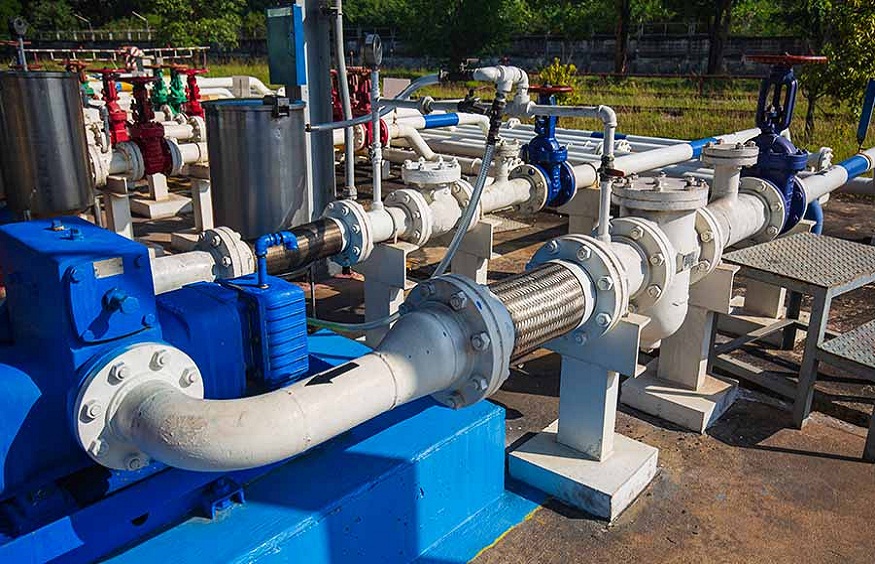In many industrial processes, pumping systems play a crucial role. From moving fluids to ensuring a seamless operation across multiple sectors, the role of pumps is vital for industries like oil and gas, chemical processing, wastewater management, food and beverage production, and more. However, selecting the right pump for each application isn’t as straightforward as it seems. With so many options available, understanding the nuances between different types and focusing on quality over cost is essential. In this article, we’ll take a closer look at why quality pumps are necessary for industrial applications, explore how they improve operational efficiency, and discuss the benefits of using progressive cavity pumps in specific processes.
Why Quality Matters in Industrial Pumps
Industrial pumps are engineered to operate under demanding conditions and move fluids across various systems. They are often in constant operation, handling abrasive, corrosive, or high-temperature liquids. Choosing a quality pump isn’t just about picking a device that gets the job done; it’s about selecting a machine that will continue to perform efficiently and reliably over time.
Key Reasons to Invest in Quality Pumps
- Reliability and Longevity: High-quality pumps are designed to withstand tough conditions and continue performing optimally over long periods. When you invest in quality, you reduce the likelihood of frequent breakdowns or malfunctions, which can lead to costly downtime and maintenance expenses. Low-quality pumps are more susceptible to wear and tear, leading to frequent repairs or replacements.
- Enhanced Efficiency: Quality pumps are typically more energy-efficient, which reduces operating costs. Industrial pumps require a significant amount of energy to function, especially in larger facilities where they may run continuously. An efficient pump ensures that energy is used effectively, helping companies save on energy expenses while also reducing environmental impact.
- Precise Performance: Quality pumps are built to deliver consistent and precise performance, ensuring that fluids are moved through systems at the required flow rate and pressure. This level of control is essential in industries like chemical processing and pharmaceuticals, where precision is critical to the final product’s quality.
- Reduced Environmental Impact: Pumping systems often deal with hazardous or toxic liquids, and a malfunction could lead to spills or leaks, resulting in environmental hazards. High-quality pumps are engineered to handle these materials safely, minimizing the risk of environmental contamination.
- Lower Long-Term Costs: While the upfront cost of a high-quality pump may be higher, the long-term savings outweigh the initial investment. Quality pumps have lower maintenance requirements, fewer parts replacements, and reduced energy consumption, leading to lower total ownership costs over time.
Understanding Progressive Cavity Pumps: A High-Quality Solution for Specific Applications
When it comes to handling highly viscous or abrasive fluids, progressive cavity pumps are an excellent choice. These pumps, also known as eccentric screw pumps, use a rotating helical rotor to move fluids through a series of small chambers. This design allows them to transfer thick, slurry-like materials smoothly and continuously, without significant changes in flow or pressure.
Progressive cavity pumps are widely used in industries such as oil and gas, mining, wastewater treatment, food processing, and more. Their unique design and operational benefits make them an attractive option for specific applications where other pumps might fall short.
Advantages of Using Progressive Cavity Pumps
- Versatility in Fluid Handling: One of the primary advantages of progressive cavity pumps is their ability to handle a wide range of fluids, from low-viscosity liquids to highly viscous and abrasive materials. This versatility makes them suitable for applications where the fluid properties vary significantly, such as in food processing or wastewater treatment.
- Consistent Flow Rates: Progressive cavity pumps offer a steady, pulse-free flow, making them ideal for applications where a consistent flow rate is necessary. This feature is particularly useful in chemical processing, where even small fluctuations in flow rate can affect product quality.
- Ability to Handle Solid Particles: The progressive cavity design allows these pumps to handle liquids with solid particles or suspended materials, which is beneficial in industries like mining and wastewater treatment. Unlike other pumps that may clog or lose efficiency when dealing with solids, progressive cavity pumps are designed to move such materials without compromising performance.
- Low Shear Pumping: Many industrial processes involve delicate fluids or materials that can be damaged by high-shear pumping. Progressive cavity pumps provide a gentle, low-shear pumping action, making them suitable for handling sensitive materials like food products, chemicals, or biological substances.
- High Suction Lift Capability: Progressive cavity pumps can handle fluids from deep tanks or underground sources due to their high suction lift capability. This feature is particularly advantageous in applications like dewatering or oil extraction.
- Durability in Harsh Conditions: Made from durable materials, progressive cavity pumps can withstand harsh industrial environments. Their design is resistant to wear and corrosion, ensuring they maintain consistent performance even in abrasive or corrosive conditions.
Applications of Quality Progressive Cavity Pumps in Various Industries
Progressive cavity pumps are found in a variety of industries, each benefiting from the unique characteristics of these pumps. Here’s a closer look at how different sectors utilize them:
- Wastewater Treatment: Progressive cavity pumps are widely used in wastewater facilities to transfer sludge, slurry, and other thick waste materials. Their ability to handle solids and viscous fluids efficiently makes them ideal for moving heavy, mixed materials without clogging.
- Food and Beverage Processing: In the food industry, these pumps are used to transfer viscous products like syrup, sauces, and dough. The gentle pumping action ensures that food materials retain their texture and consistency without being damaged by excessive shear force.
- Oil and Gas Industry: In oil fields, progressive cavity pumps are used for dewatering and moving oil mixtures that contain sand and other particles. Their high durability and ability to handle viscous materials with solid content make them valuable for onshore and offshore applications.
- Chemical Processing: Progressive cavity pumps handle chemicals with various viscosity levels and abrasive properties. They ensure a precise flow rate, which is critical in chemical processing to maintain the integrity of the end product.
Key Considerations When Selecting a Quality Pump
Choosing the right pump for industrial applications can be challenging, especially with so many factors to consider. Here are some critical aspects to evaluate when looking for a high-quality pump:
- Compatibility with Fluid Characteristics: Ensure that the pump you choose can handle the specific properties of the fluid it will be moving. Progressive cavity pumps, for instance, are ideal for viscous and abrasive fluids, but if you’re dealing with high-flow, low-viscosity fluids, a centrifugal pump may be a better fit.
- Maintenance Requirements: Opt for a pump with a maintenance schedule that aligns with your operational needs. Progressive cavity pumps generally require minimal maintenance, which can be a significant advantage in environments where frequent downtime is undesirable.
- Energy Efficiency: Industrial pumps consume a significant amount of energy. Choosing a quality pump that optimizes energy use can reduce operating costs over time. Look for pumps with efficient motors and designs that reduce power consumption.
- Longevity and Durability: Evaluate the materials used in the pump construction. Stainless steel, for instance, is corrosion-resistant and ideal for handling harsh chemicals. A durable pump reduces the need for frequent replacements and ensures consistent performance over time.
- Cost of Ownership: Instead of focusing solely on the initial cost, consider the long-term cost of ownership. High-quality pumps may come with a higher upfront price but are often more cost-effective in the long run due to reduced maintenance, longer lifespan, and better energy efficiency.
Conclusion: The Value of Quality Pumps in Industrial Settings
Investing in quality pumps is essential for any industry that relies on efficient fluid handling. Quality pumps not only provide reliability and durability but also reduce long-term operational costs, enhance safety, and contribute to better environmental practices. Progressive cavity pumps stand out as an excellent choice for specific applications, offering versatility, precision, and durability in handling viscous, abrasive, and particle-laden fluids.
In a world where efficiency, reliability, and cost-effectiveness are paramount, high-quality industrial pumps are indispensable assets. Whether you’re in wastewater management, food processing, or oil extraction, choosing a quality pump designed for your specific needs will ensure smooth operations and contribute to your facility’s overall success. With a focus on long-term performance, quality pumps are a wise investment that pays off over time.

